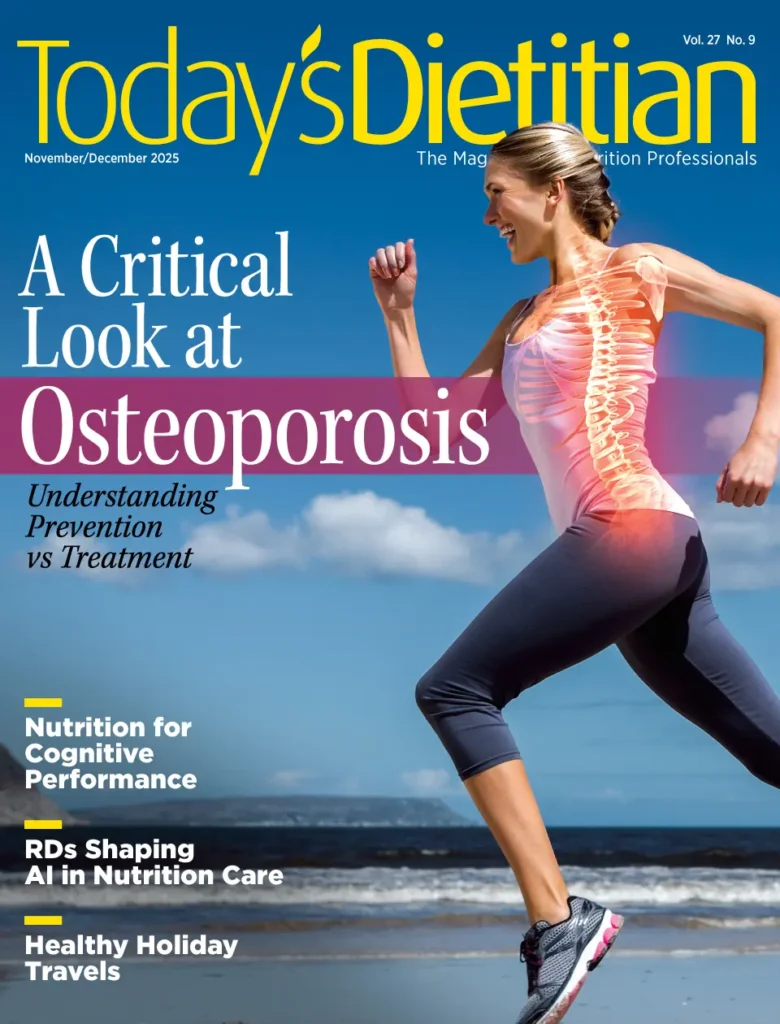As COVID-19 spread throughout the world, individuals’ daily routines and behaviors changed drastically. A new study of more than 2,000 people in the United States found that the pandemic also has affected how people eat. The authors found a decrease in the consumption of many food groups, particularly healthful foods such as vegetables and whole grains, compared with before the pandemic.
“When the pandemic began, we saw panic buying, problems in the food supply chain, increases in food prices, and rising unemployment rates,” says Caroline Um, PhD, a postdoctoral fellow at the American Cancer Society. “All these factors can affect access to food, and we wanted to find out if and in what way people’s diets were changing.”
Um presented the new findings as part of NUTRITION 2021 LIVE ONLINE, a virtual conference recently hosted by the American Society for Nutrition.
“We were surprised to see decreased consumption of a lot of the healthful foods,” Um says. “This decrease was the most pronounced among women, Black and Latino study participants, and participants who gained at least 5 lbs since 2018.”
The new research was based on participants in the Cancer Prevention Study 3 (CPS-3), which enrolled more than 300,000 men and women from across the country. Starting in 2015, participants completed surveys every three years that assessed diet through a validated food frequency questionnaire or a food group questionnaire. In 2020, the researchers enrolled 2,335 participants in a pilot test for a new online portal for the CPS-3 study that included a COVID survey.
“We were already planning to launch this online portal, but when the pandemic began, we decided to incorporate a new COVID survey,” Um says. “In addition to asking about the consumption of major food groups, the survey also asked about other COVID-related aspects such as how the pandemic has affected their physical and mental health, access to health care, and financial security.”
The researchers administered the COVID survey in July and August of 2020 and compared the results with responses from the 2018 food group questionnaire, before the pandemic began. Interestingly, most participants indicated a belief that their consumption of all the food groups included in the survey hadn’t changed during the pandemic, showing that perception doesn’t always match up with calculated results.
The researchers note that the pandemic isn’t yet over and there are still many factors affecting food availability and access for many Americans. “It’s possible that the shift in consumption of fewer healthful foods will continue,” Um says. “This could raise the risk of gaining weight and thus increase risk of various chronic diseases.”
Um adds that it’s important to gain a better understanding of why these changes are occurring and why they may be more pronounced in certain populations so interventions can be developed to stop the shifts toward unhealthful eating and to prevent this from happening in the future should a similar situation occur again.
The researchers are continuing to follow up with study participants to understand how diets continue to change. They’re also planning studies that will examine specific psychosocial factors—such as mental health or financial stressors—that might be involved in the changing eating behaviors.
— Source: American Society for Nutrition
Certain Eating Behaviors Correlated With Greater Calorie Intake
According to a new study, people who eat faster or take larger bites are more likely to eat more at a meal. The research, presented at NUTRITION 2021 LIVE ONLINE, provides new insight into the factors that might contribute to overeating.
The study also adds more evidence that people eat more when given larger portions. The researchers found that study participants ate, on average, 43% more when the portion size of a meal was increased by 75%.
“Although studies have consistently found that people eat more when they’re served larger portions, less is known about why this happens or why some people are more responsive to the effects of large portions than others,” says first author Paige Cunningham, a doctoral student at The Pennsylvania State University. “This is one of the first studies to explore whether the characteristics of eating speed and bite size have an effect on people’s food consumption in response to larger portions.”
For the new study, the researchers served 44 men and women lunch once a week for four weeks. For each meal, the study participants received, in random order, a different portion of macaroni and cheese with water to drink. The researchers videotaped each meal to assess the speed at which participants ate and the size of their bites.
The fact that participants ate meals that were all four sizes, meant that they could each serve as their own comparison. The researchers expect the results to be generalizable to other groups since the study participants were diverse in terms of age, sex, body weight, income, and education.
“Based on our findings, being aware of portion size, slowing down when you eat, and taking smaller bites of food could help avoid overconsumption,” Cunningham says. “Also, since people eat more when served more, overconsumption of calories from large portions can be reduced by choosing foods that have fewer calories per bite. This lets you eat the same filling portions of foods while consuming fewer calories.”
The researchers plan to perform more studies to see whether their findings apply to a longer, more complex meal that includes a variety of foods, textures, and flavors.
— Source: American Society for Nutrition


